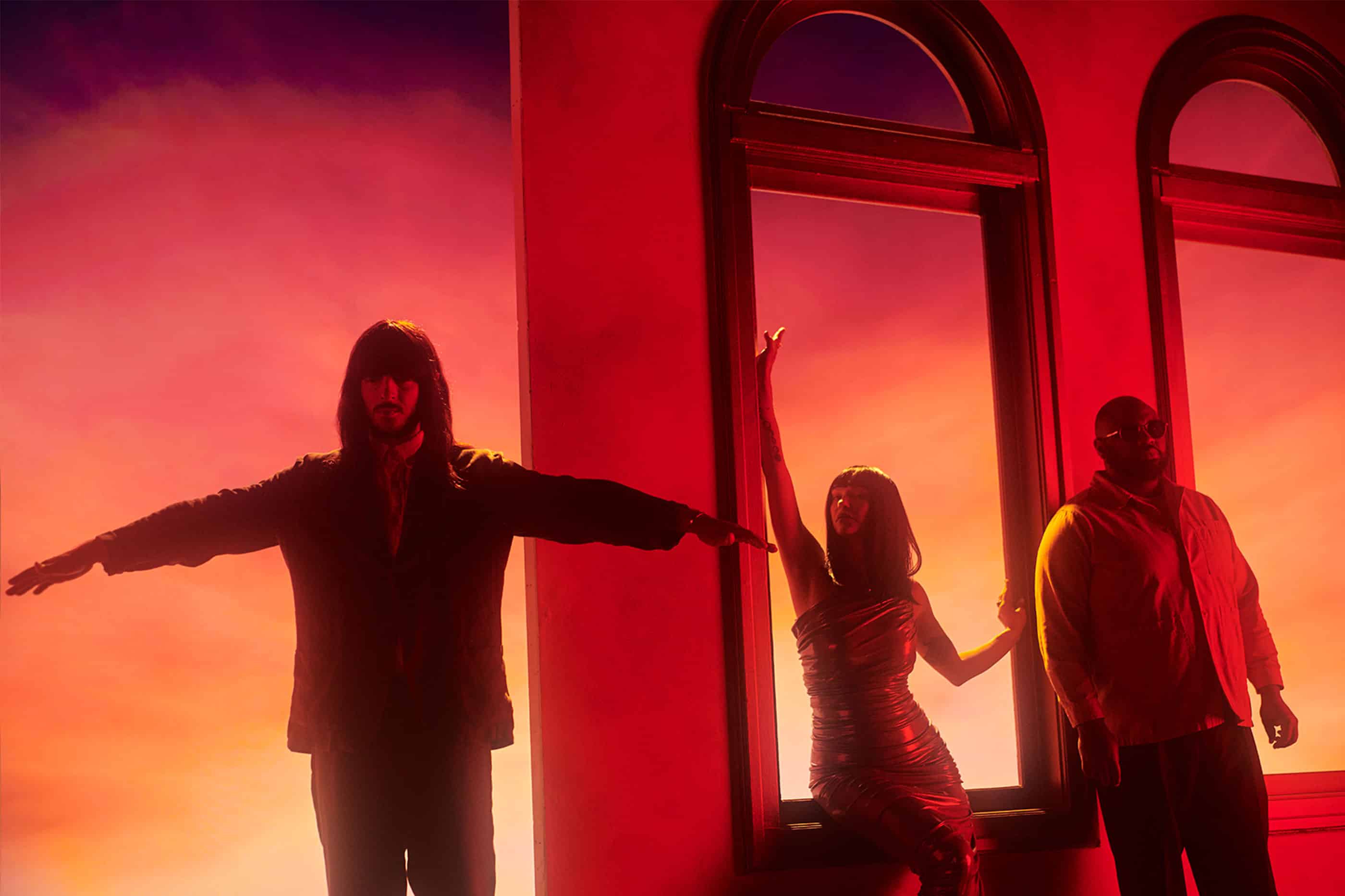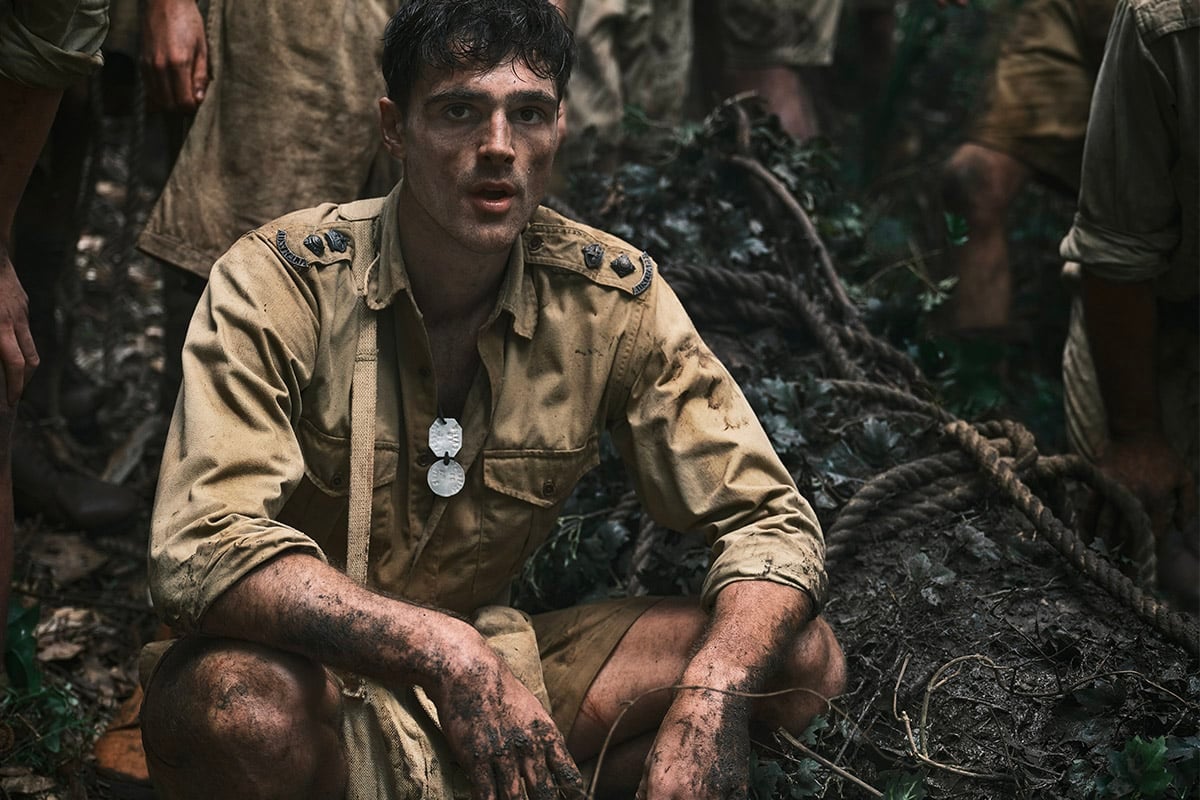
Although Khruangbin are a Texan band, the sonic references that create the band's world are decidedly global. As a predominantly instrumental band, they lean into the lyricism of Mark Speer’s guitar, the melodic groove of Laura Lee Ochoa’s bass and the grounding, tight drumming of DJ Johnson to take their audiences on journeys, and inspire feelings. With a name that translates to 'airplane', Khruangbin have always been able to transport people to a better place through imagination or open windows.
Whilst Ochoa can’t seem to remember what sleep or relaxation is, having just had a baby on her year off, she and Johnson are excited for the forthcoming record and tour, and says that the "energy is brewing". Having collaborated with Leon Bridges on two EPs, and developed their musical and production style over the years, Johnson explains that they really wanted to strip things back for their fifth studio album, A la Sala.
Johnson explains, "It was a longing to get back to square one. We started, and the early stuff we put out, had a premise of minimalism and lots of space – really leaning into textures and really good tones – and that was something that we wanted to get back to". Johnson continues by saying that when you go too far in one direction, you can make your way to the other side of the circle, back to where you started.
Ochoa tells me that, when it comes to Khruangbin’s writing process, "the journey builds itself as you're on it". Instead of there being a plan before the band goes into record, Ochoa says they bring in puzzle pieces and spend time working out which ones go together and how it is going to take shape.
"It's a very organic process. You're holding each other's hands, and finding your way." Johnson concurs with Ochoa on the story writing itself, and attributes this to her ability to sequence the songs to their shaping. Speaking to the story arc, Johnson explains, "Laura plays a really critical role in the sequencing of the songs. So, we have these songs and, of course, they all go together, but in order for them to make sense as a listening experience, the sequencing takes it home." Johnson also acknowledges that the listening culture of records has changed, and that they might have an "old school process and approach", but with a sense of respect and pride, he states that "she [Ochoa] really plays a big part in making it sound and feel like an album."
As a band with a hugely diverse record collection and wide-reaching references, I’m curious to know if exposing people to new music and educating them in new ways is important to them, or even a conscious decision. Ochoa feels that if it happens, it’s a bonus, saying that, “I think what we listen to comes through. We all listen to different things and it just sort of subconsciously comes out in our playing. I think there's a dedication to integrity – and to us being ourselves –and I think sometimes that does come with education, because you're having to go against the grain, and go against the algorithms. You're having to fight your corner. I think that sometimes appreciating and expecting more of people comes with that. It's hard because the assumption, or expectation, is that people are wanting to be fed what the machine is feeding them."
Ochoa explains that people often fought the band’s decision to be instrumental in the beginning; the incorrect assumption being that everyone wanted to hear vocals. However, the band do use vocals, and when they do, Johnson explains that "It's usually because we've gotten to the point where we all realise sonically, ‘Okay, they're needed. That's the missing piece of the puzzle’. We realised that a while back not everything needs vocals, because it's an important texture. If you use it properly, it could be a powerful and really great texture."
Rather than dictate to their audience, Khruangbin want to keep their vocals textural and deliberately ambiguous. Ochoa tells me, "Mystery is a beautiful, beautiful thing. I think instrumental music is so great because there are no words, and so the listener decides what the song is about or what the feeling is.” Ochoa feels that the same effect is created when you listen to music in other languages, and that by painting too much of a picture you can give away, or tell the listener too much.
With regards to the visuals surrounding A la Sala, Khruangbin want it to feel like "you're in the living room and you're comfortable in your cozy spot, but you're looking out the window". As Ochoa explains, "This window is the portal to wherever. We wanted to create a light surrealism; nothing overtly in your face. A surreal, but subtle dreamscape."
Having put the puzzle pieces of the album together, Khruangbin are planning to tour this year, and as Johnson says, they plan to keep their schedule as close to their home routine as possible. Last time the band were in Australia, Ochoa was pregnant and in the bath an hour after each live show was finished; a practise that she, and perhaps her audience, will maintain.



